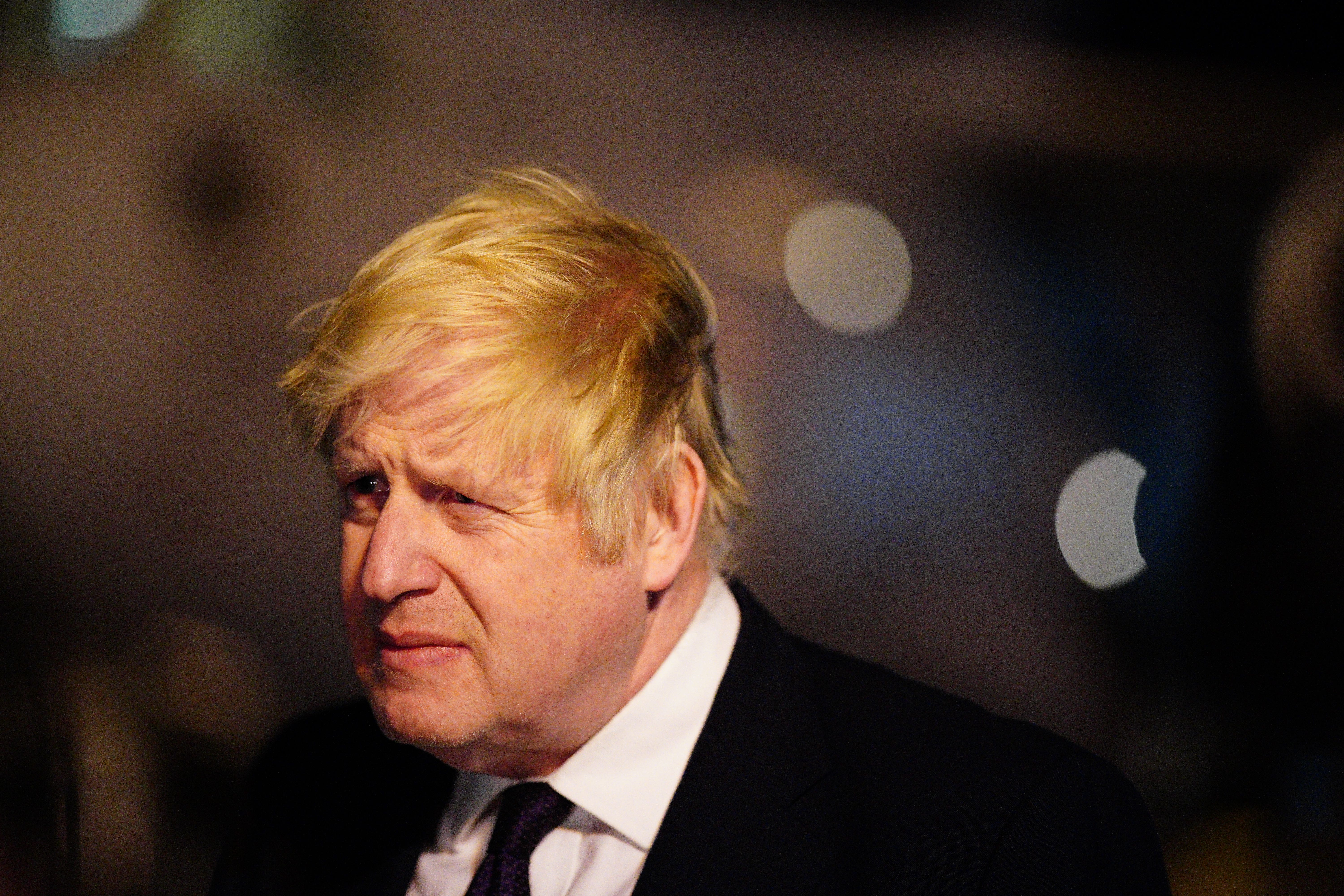Boris Johnson told ‘a lie’ over Putin missile attack claims, says Kremlin
The former prime minister alleged that the Russian president appeared to threaten him in the days before Moscow’s invasion of Ukraine
Your support helps us to tell the story
From reproductive rights to climate change to Big Tech, The Independent is on the ground when the story is developing. Whether it's investigating the financials of Elon Musk's pro-Trump PAC or producing our latest documentary, 'The A Word', which shines a light on the American women fighting for reproductive rights, we know how important it is to parse out the facts from the messaging.
At such a critical moment in US history, we need reporters on the ground. Your donation allows us to keep sending journalists to speak to both sides of the story.
The Independent is trusted by Americans across the entire political spectrum. And unlike many other quality news outlets, we choose not to lock Americans out of our reporting and analysis with paywalls. We believe quality journalism should be available to everyone, paid for by those who can afford it.
Your support makes all the difference.The Kremlin has suggested Boris Johnson told “a lie” when the former prime minister said that Russian President Vladimir Putin appeared to threaten him with a missile strike.
The former Downing Street incumbent made the claim in a new three-part series for BBC Two looking at how the West grappled with Mr Putin in the years leading up to the war in Ukraine.
Mr Johnson, talking about a phone call between the two leaders ahead of Moscow’s invasion of Ukraine, said: “He sort of threatened me at one point and said: ‘Boris, I don’t want to hurt you, but with a missile, it would only take a minute,’ or something like that.”
But the Kremlin disputed the claim, saying there were “no threats with missiles” during the bilateral conversation held in February 2022.
Kremlin spokesperson Dmitry Peskov, asked about Mr Johnson’s comments on Monday, said that the British politician’s account was untrue, “or, more precisely, it was a lie”.
Mr Peskov said the former prime minister may have deliberately lied or failed to understand what the Russian leader was telling him.
“There were no threats with missiles,” Mr Peskov said during a conference call with reporters.
“While talking about security challenges to Russia, President Putin said that if Ukraine joins Nato, the potential deployment of US or other Nato missiles near our borders would mean that any such missile could reach Moscow in minutes.”
Mr Johnson told the documentary producers that the “extraordinary” conversation took place last February after he had visited Kyiv to show Western support for Ukraine amid growing fears of a Russian assault.

War would break out only days later, with Russia launching its attack on Kyiv on 24 February.
Mr Johnson said Mr Putin had a “very relaxed tone” and an “air of detachment” as he spoke.
“He was just playing along with my attempts to get him to negotiate,” Mr Johnson said.
The former PM, who left Downing Street in September after being forced from office following a series of controversies, made the visit to Kyiv in early February to warn Russia that an invasion would prove disastrous.
Since leaving No 10, he has continued to foster relations with Ukrainian president Volodymyr Zelensky, visiting Kyiv again earlier this month.
Downing Street said it would not be drawn on whether the prime minister, Rishi Sunak, considers himself safe from a Russian attack.
The prime minister’s official spokesman, asked if there is a continuing threat to the safety of the UK’s leadership from Mr Putin, said: “I can’t get into specific threats against individuals, particularly senior political figures.
“I think we’re clear that a failure to act in defence of Ukraine could potentially pose a wider risk to the safety of people in the UK.”
During his contribution to the documentary, Mr Johnson recalled that he warned Mr Putin there would be tougher Western sanctions if he ordered an invasion of Ukraine.
He also said he told the Russian leader that the escalation would only see Western states increase support for Ukraine, meaning “more Nato, not less Nato” on Russia’s borders.
“He said: ‘Boris, you say that Ukraine is not going to join Nato any time soon. […] What is any time soon?’ And I said: ‘Well it’s not going to join Nato for the foreseeable future. You know that perfectly well,’” Mr Johnson said of the call with Mr Putin.
It was after those remarks that Mr Putin mentioned the missile attack, according to Mr Johnson.
Defence secretary Ben Wallace also spoke to the Putin vs The West programme, set to air on Monday evening, about his journey to Moscow in February as he sought to reach a breakthrough and see off war.
The programme also hears from Mr Zelensky about his efforts to win over Nato secretary-general Jens Stoltenberg.


